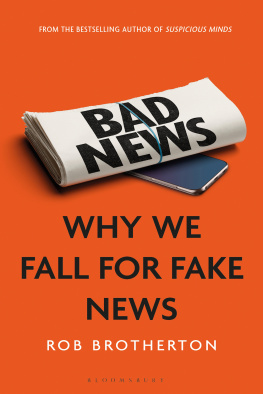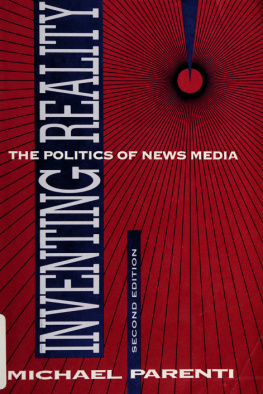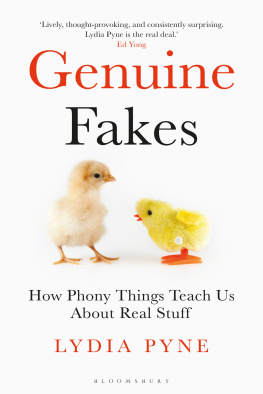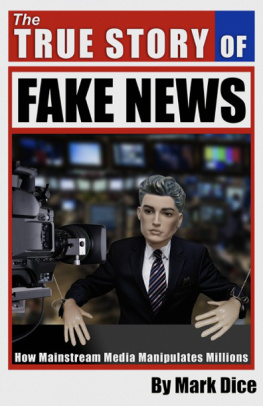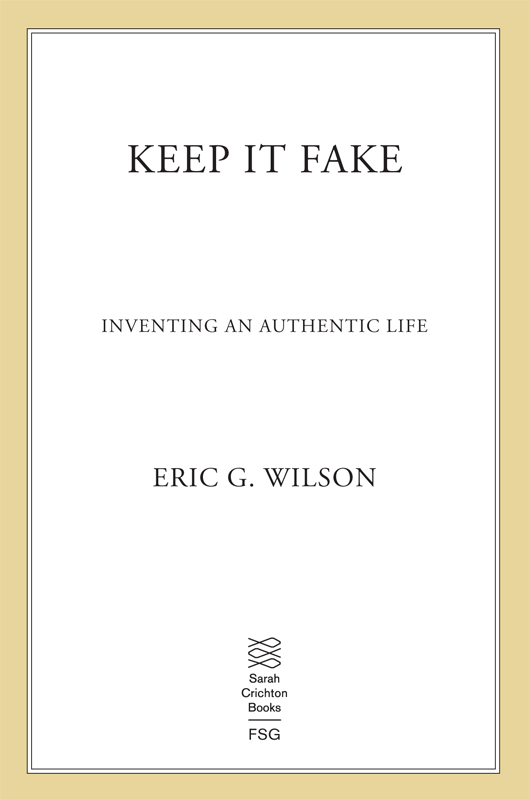Contents
Guide

The author and publisher have provided this e-book to you for your personal use only. You may not make this e-book publicly available in any way. Copyright infringement is against the law. If you believe the copy of this e-book you are reading infringes on the authors copyright, please notify the publisher at: us.macmillanusa.com/piracy.
For Phil Arnold, a sleight-of-hand man
The crude commercialism of America, its materialising spirit, its indifference to the poetical side of things, and its lack of imagination and of high unattainable ideals, are entirely due to that country having adopted for its national hero a man who, according to his own confession, was incapable of telling a lie, and it is not too much to say that the story of George Washington and the cherry-tree has done more harm, and in a shorter space of time, than any other moral tale in the whole of literature.
OSCAR WILDE
Everyone wants to be Cary Granteven I want to be Cary Grant.
CARY GRANT
It was hilarious, regardless of reality.
ANONYMOUS INTERVIEWEE ON ENTERTAINMENT TONIGHT
I am the boy whose first word was ball. I am six and sitting at dinner with my parents and two-year-old brother. We are eating chicken-and-cream-of-mushroom casserole, Del Monte green beans, and Brown n Serve dinner rolls. On the Zenith in the other room, Cronkite drones, And thats the way it was. The overhead bulbs glare on the pine-green plates and the charred candlewicks we light only on steak nights. Earlier that day, my best friend, John, had said that his first word was bubba. We found this funny, since the only man we knew by this name was a limping three-hundred-pounder who stank and cackled while draining thirty-footers during the halftimes of junior high basketball games. I didnt know my first word. So I asked that night. My mom was pouring iced tea, and Dad was reaching for the butter, and they said, in unison, ball. This was the best response ever.
Dad, still wearing his whistle at the table, was the head football coach at the local high school. The game consumed him, and he passed the obsession to me. In my childhood photographs, Im wearing football jerseys in all colors; the number always falls between five and fifteen, a quarterback-favoring range. Im also hugging NFL-size footballs. By the age of five, Im already collecting Topps trading cards of pro players, though I dont yet possess a picture of my favorite, Fran Tarkenton, the quarterback of the Minnesota Vikings. The coach makes up for this by giving me a Tarkenton jersey for Christmas, purple polyester, white number ten, gold and white stripes on the sleeves, and, best of all, printed on the back, spanning my shoulder blades, Wilson. This begins a holiday tradition, lasting until the eighth grade: a new jersey of a new favorite QB. Joe Namath one year, Terry Bradshaw another, Ken Stabler, Dan Pastorini, Steve Bartkowski, Jim Zorn, and Tommy Kramer (Tarkentons replacement) on yet others. And always along with the jersey comes a fresh football. I can wear out a pigskin in a year, easy. If Im awake and not at school, Im passing, kicking, punting. By the time Im six, I lie in bed just before lights-out and throw the ball toward the ceiling over and over, each time imagining I am Fran, and each toss and catch, a touchdown.
Ball proved prophetic: I spent my early childhood training to be a quarterback, played the position well on my middle schools team, played it better in high schoolleading the 83 team to the schools only undefeated regular seasonand ended up being recruited by West Point to play for Army.
Only when I hit the U.S. Military Academy on July 1, 1985, and questioned quarterbacking and everything else, did I doubt my parents honesty. There was no way I really blurted that word. Surely the coach wanted so much for my first word to be ball that he translated my blubbery random b s and l s into his favorite sound. Doing so, with my agreeable mom cheering on, he thrust me into a narrative, with a beginning, middle, and end satisfying to his soul: My boy was born to the gridiron.
What if he had converted my babble into ma-ma or da-da or dog or duck or car? Would I be crashing in derbies or blasting mallards or suffering serious Freud lashings? (Which I actually am.) What if Id said poor Johns first word and found myself shuffling around gyms fat, lonely, and mocked? John escaped this destiny, became fast, lean, and popular and cool and got all the girls my neurotic self (is Hamlet ever a first word?) never could. His parents didnt make a big deal, I guess, over bubba. They eased him into other plots, loose and casual, and so his narrative was open-ended, more Tristram Shandy than my Great Expectations .
Regardless of form, digressive or linear, by the time we become aware of ourselves we are already trapped in fictions not of our making, and our only hope of escaping the text is to write our way into stories of our own. Our self-fashioned narrative, however, no matter how original, has already been determined by the tale we inherited: we can only define ourselves somewhere on a spectrum running from fuck you, old man to Im a chip off the old block. Whether I become a footballer, a poet, a doper, or live fast and leave a fine corpse, I am always the boy who first said ball.
More goes into a self than grammar, syntax, semantics, plot: atoms violently birthed in the Big Bang, the make of our species, millennia of history and culture, DNA. Each of us is a braid whose strands range from the oldest hemp to most recent nylon. But only one line elevates us from mere being to abundant meaning, from bare existence that is what it is, nothing more, to purpose, yearning, failure, love, writing books, and comparing cell phones. That line is language.
At the dinner table that night in 73, encased in our rancher in tiny Taylorsville, North Carolina, my dad, my mom, my brother, and I: we were all informed by stories ancient and near: the biblical myths, the parables of American Christianity, dreams of the Democratic Party, Southern gothic lore, small-town tales, the fantasy scripts of parents, our own earliest gurgles and coos. We were (and are) each a node in a vast textual network, crisscrossed by thousands of narratives, out of which we in our own way were (are) trying, fated and desperate, to weave a cogent I.
How many moments have you lived so far? Ten years contain about five million, so do the calculations. (Im somewhere between twenty and twenty-five million myself.) How many things have happened to you during those minutes, or have you made happen? Billions and billions. When you piece together an identity, a story of who you are, you choose only a fraction of these events as components of the narrative, a narrative already determined by millions of preexisting ones, and you emphasize some episodes over others and slant the tale to support your idea of self.
You find yourself a character of a great gloomy luminous novel composed for you for untold centuries, and you labor most of your days to seize the pen for yourself, form your own plot, grow into your hearts hero. The work is in progress: you revise earlier passages to conform to your current feelings. You do the same with the present moment, altering your self-definition in the now to correspond to memorys eruptions.
The snuffed candle around which my family and I were huddled that night might as well have been a fire; our wood-paneled walls, cave rock; and our artifice-making, painted images flickering on those walls, alive. Tens of thousands of years ago, when the language among Homo sapiens sounded little different from an infants grunting, men and women first discovered how representations of material existencepaintings, words, shadowscan shape physical experiences. This event marks a decisive move from animal to human, from rut and devour to brooding on the quick and the dead.


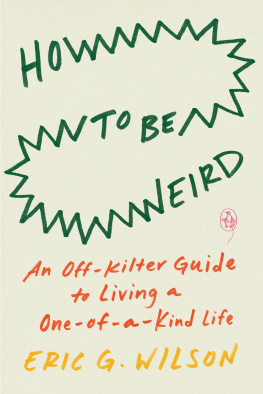
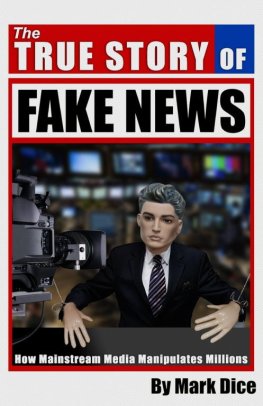
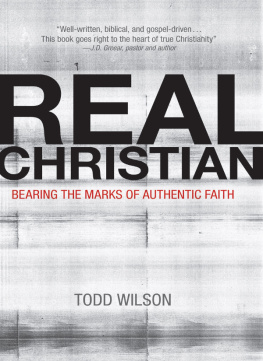
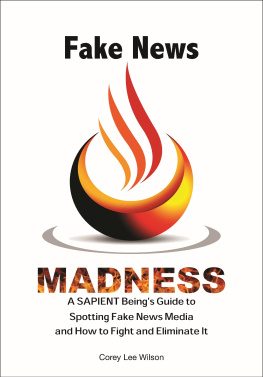
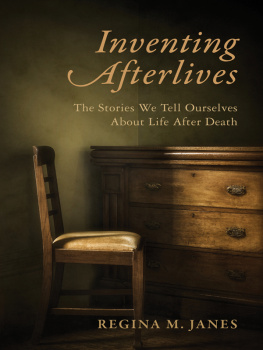
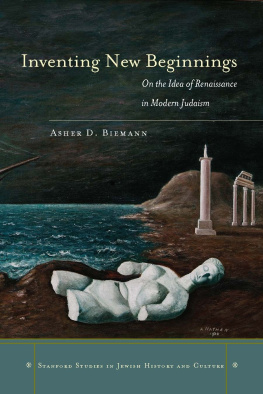
![Crowe Ellie - Hardcore inventing: the IP[superscript]3 method: invent, protect, promote, and profit](/uploads/posts/book/192248/thumbs/crowe-ellie-hardcore-inventing-the.jpg)
